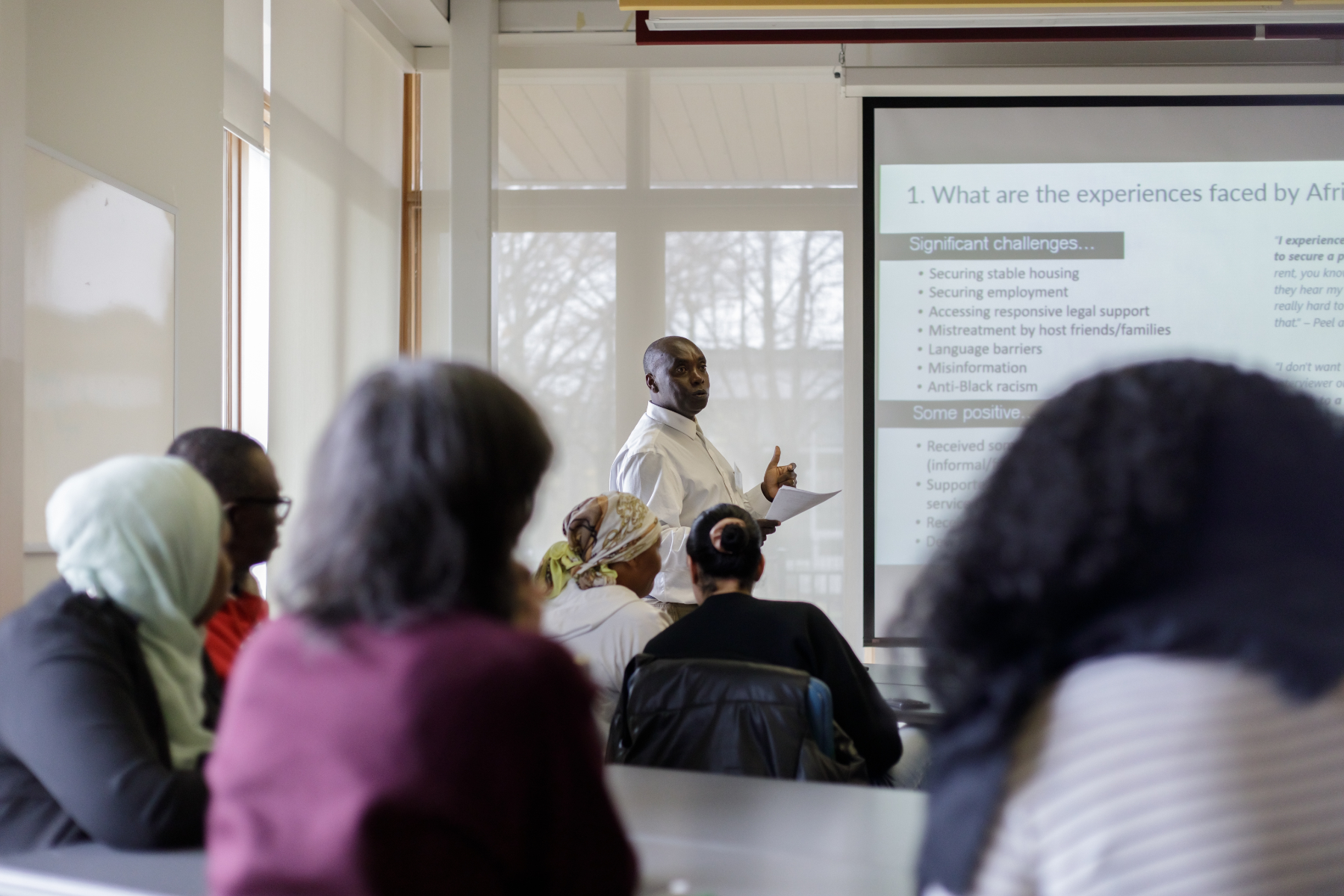What do we mean by Any Way We Can?
Any Way We Can
United Way works to fight poverty, improve social conditions and drive systems
change so that everyone across the GTA has access to the building blocks they need to thrive: safe
housing; stable income and employment; local services and real opportunities to engage
in shaping the future of the place they call home.
Over the last 69 years, we have moved with the times and challenges, responding to emerging needs
and opportunities in our community, going broad and going deep, as required, to make the difference
only we can. In the early years, that meant building out our fundraising capabilities and a strong
network of community agencies. Fifteen years ago, it called for the development of the first Community
Hubs across Toronto and publishing impactful research focusing on employment precarity and growing
inequality. During the pandemic, it required greater coordination with government to deliver community
services
and support. And more recently, with the pressures of growth evident in communities across our region,
it
has demanded that we work closely with agencies and residents to support neighbourhood development and
safeguard the community services and spaces so many of us depend upon.
When we say Any Way We Can, we mean it. Whatever it takes to build a better region, we are on it.
And
whatever challenges are coming around the corner, we will face them alongside the communities we
serve.
You can count on it. You can count on United Way Greater Toronto.
Here are some highlights of what that has looked like over the past year.
Reconciliation and equity in action
Question: How to build up smaller organizations that support historically
underserved communities?
Answer: Help them overcome the limitations of stop-and-start funding. That is the story behind
behind 14 Indigenous, Black and equity-led agencies, announced as the most recent additions to our
portfolio of Anchor organizations. This tight group of now 80 leading agencies within the United Way
300+ network
receive five-year program funding and general operating support — something unique within the
sector.
For the 14, becoming an anchor agency is the culmination of an intentional pathway we have blazed
since 2022 with targeted funding geared to strengthening their organizational infrastructure —
think
financial know-how, governance, human resources. Today, agencies like Embrave Agency to End Violence and
African Community Services of Peel are playing a greater role in our community’s social infrastructure.
Strengthening these organizations and the programs they deliver is
one of many ways United Way is making progress on goals laid out in our Reconciliation and Equity
Action
Plan to become a more equitable funder and achieve more equitable outcomes in community.
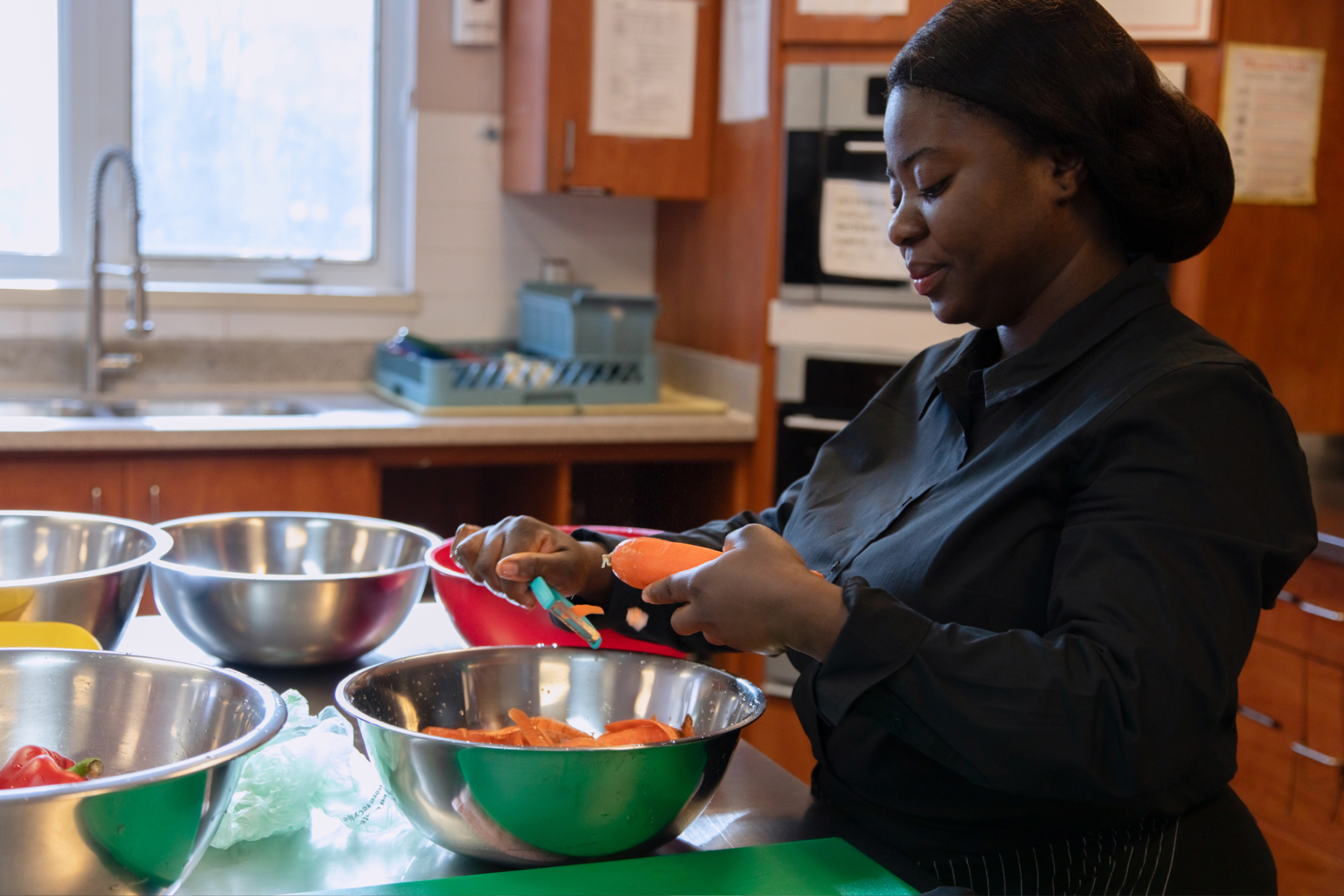
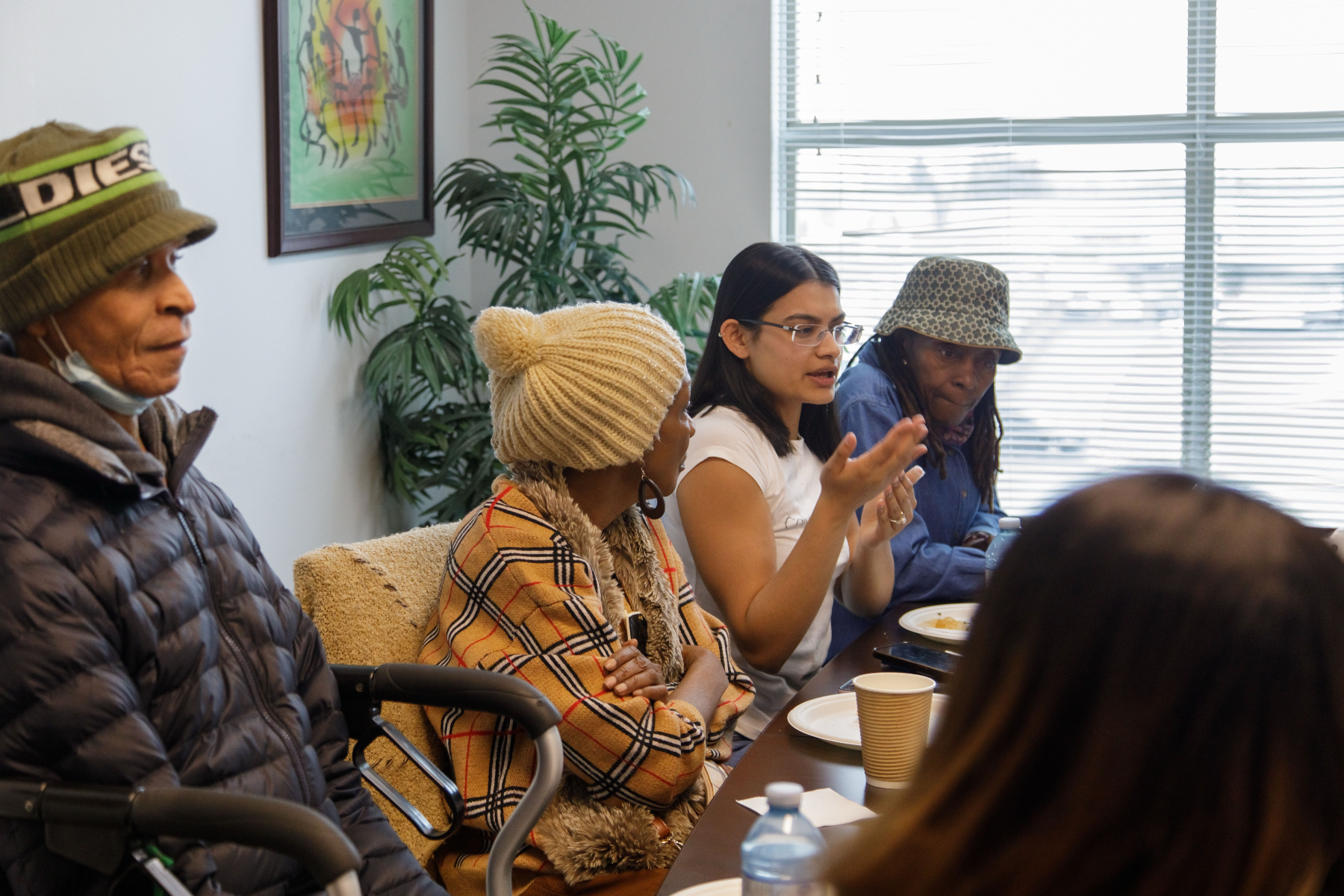
Building on success: a new generation of community hubs
A festive groundbreaking heralds the opening of United Way’s newest Hub in Thorncliffe Park, bringing a comprehensive array of social and health services to the growing community. The Hub, led by United Way-funded agency The Neighbourhood Organization and with partners like Flemingdon Health Centre and Don Valley Community Legal Services, is our newest addition to vital community infrastructure. For more than 15 years, United Way has been developing one-stop-shop Hubs in neighbourhoods all too often left behind. With Thorncliffe completed that makes 9 Hubs across the GTA. Together they’ve amassed more than 5.1 million visits, welcoming local residents to shared community spaces and vital programs offered by more than 100 community-serving agencies. This cornerstone of our work is a proud legacy we’re building on, with plans for another 10 over the next decade, bringing the successful model to other communities throughout our region.
Staying the course to improve mental health services for newcomers
Two years after tabling a seminal report identifying gaps in meeting the mental health needs of settlement clients, local immigration partnership Peel Newcomer Strategy Group isn’t letting up on this strategic priority. In partnership with agencies, government services and educational institutions and in alignment with the Region of Peel’s Community Safety and Wellbeing Plan, PNSG works to strengthen culturally responsive mental health services for newcomer young adults and international students. With the voice of lived experience as a guiding principle, in-person and virtual events, training sessions and learning opportunities strengthen the capacity of service providers, enhance services for recipients, foster new connections and future referrals so the newest members of our community get the supports they need to thrive in Canada.
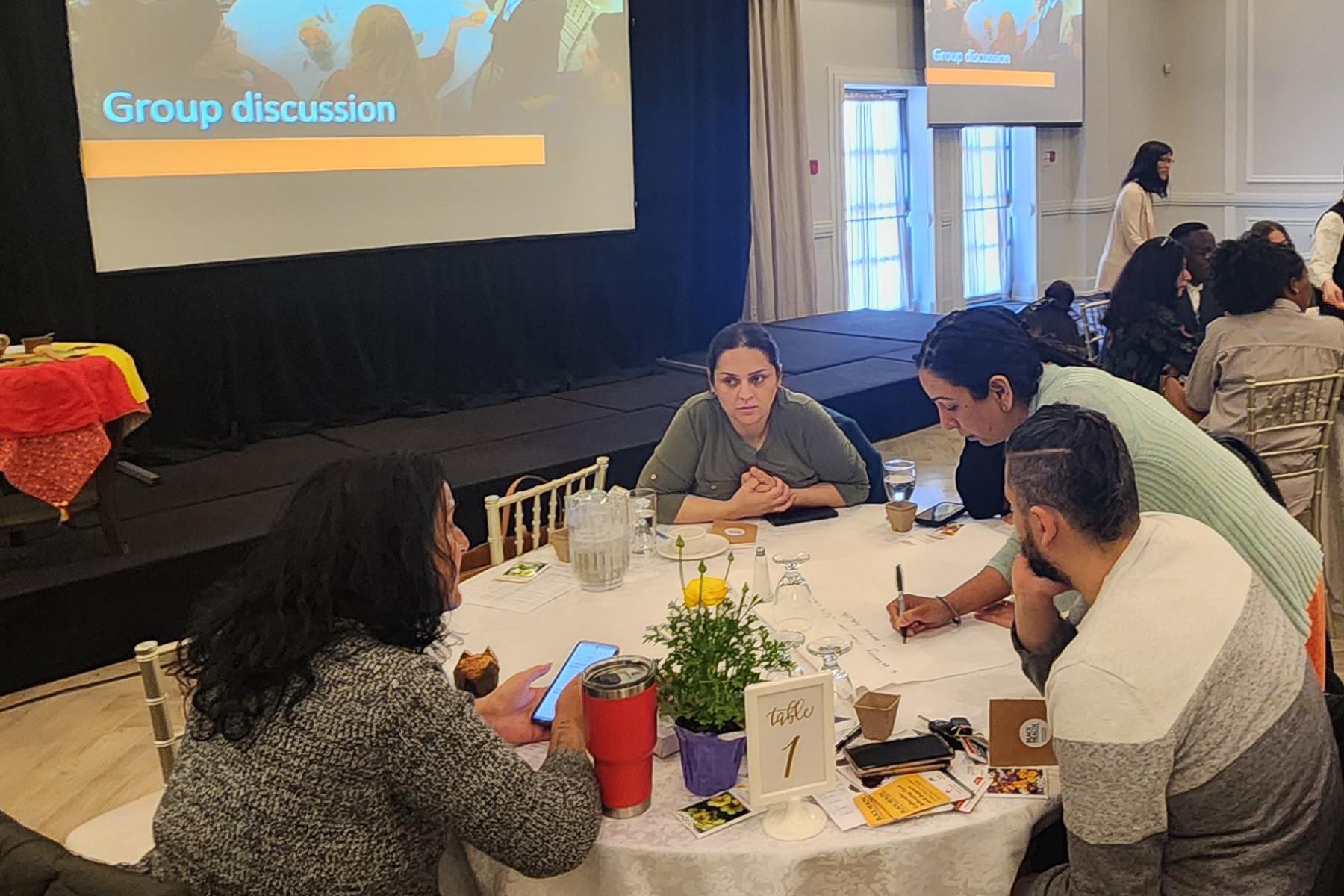
Pandemic best practice key to emergencies too
Community Coordination Tables established by United Way and the City of Toronto
to expedite services during the pandemic continue to shape local response to neighbourhood needs. Now,
they also cultivate community resilience in a unique pilot project in collaboration with the United
Way-funded Canadian Red Cross. Agencies learn to assess their emergency preparedness, identify
critical
services to sustain and develop tools and processes for a comprehensive response to urgent events. At
a
time when climate-related disasters and other urban shocks and stressors are becoming more
commonplace,
and with lessons from the pandemic in mind, emergency readiness can play a pivotal role in ensuring
more
equitable support for Toronto’s most vulnerable residents in times of crisis. We see this as first
steps
in work that we expect to build on in the coming years.
FOCUS Toronto is another systems coordination collaborative. Led by United Way, the City of
Toronto
and
Toronto Police Service, FOCUS brings hundreds of agencies and departments together to identify and
prevent community crises. Last year, FOCUS supported nearly 1,950 people. With the launch of their
seventh neighbourhood table, FOCUS is now active across all of Toronto.
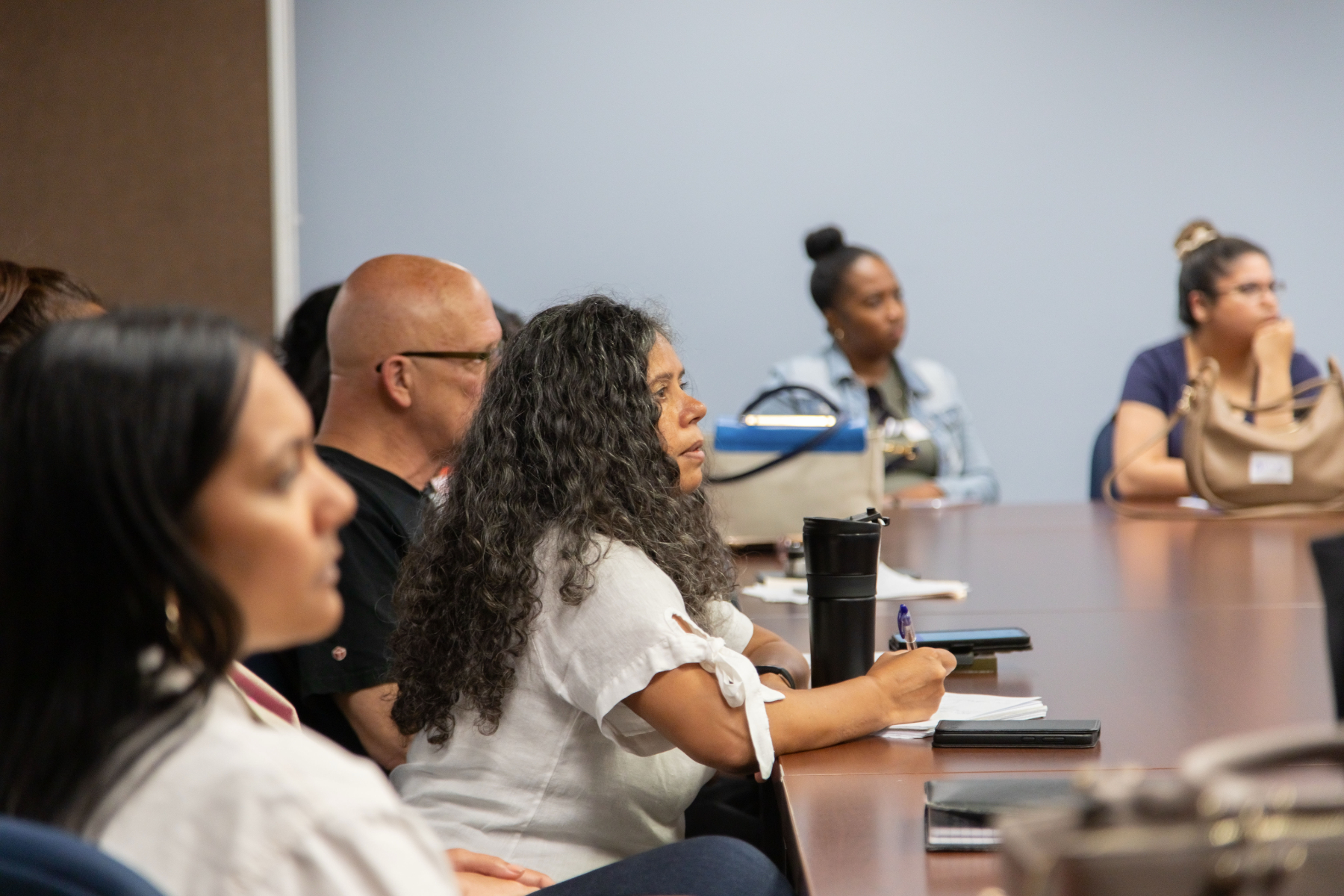
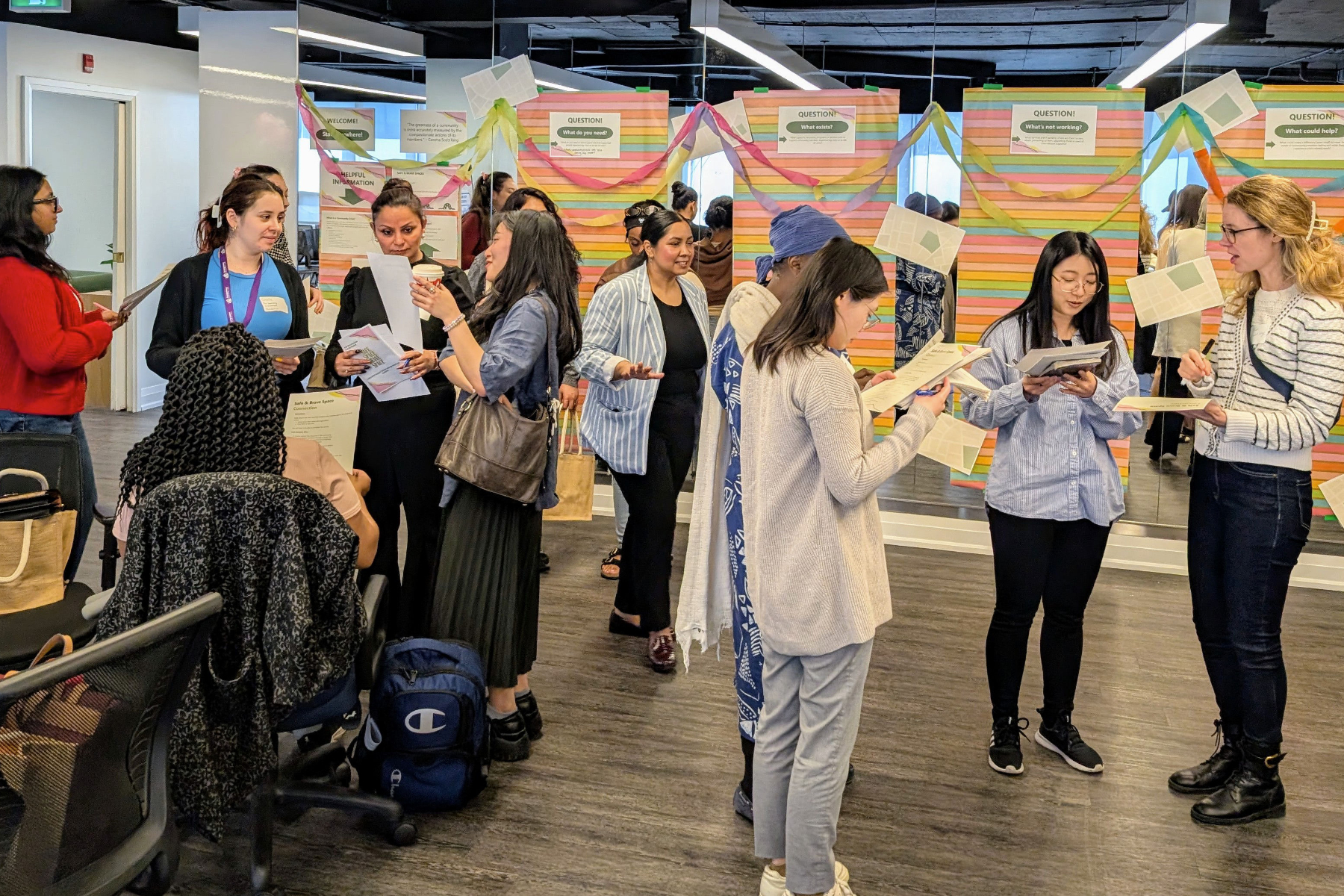
Leadership matters
Navigating complex systems, building partnerships, motivating action, standing up for what is right — requires good leadership. These are some of the reasons United Way invests in capacity building and relentless boosterism for the sector:
- The Leading Social Justice Collective a collaboration with the University of Toronto’s School of Cities, offers a four-month city-building and leadership development program for individuals from the public, private and community sectors ready to tackle systemic issues for greater justice, inclusion and equity. And Next Leaders for Change, a 10-month leadership and management program, in its second year, co-designed with WoodGreen Community Services, supports a new generation of diverse agency managers, outfitting them with the strategic and core skills necessary to undertake leadership roles in the future.
- Beyond training, United Way pulls out all the stops for Ontario’s Nonprofit Appreciation Week with the Bhayana Awards lunch, a celebration of the peer-nominated accomplishments of frontline workers. And partners with the City of Toronto for the Community Champions awards, recognizing individuals and agencies strengthening diverse communities.
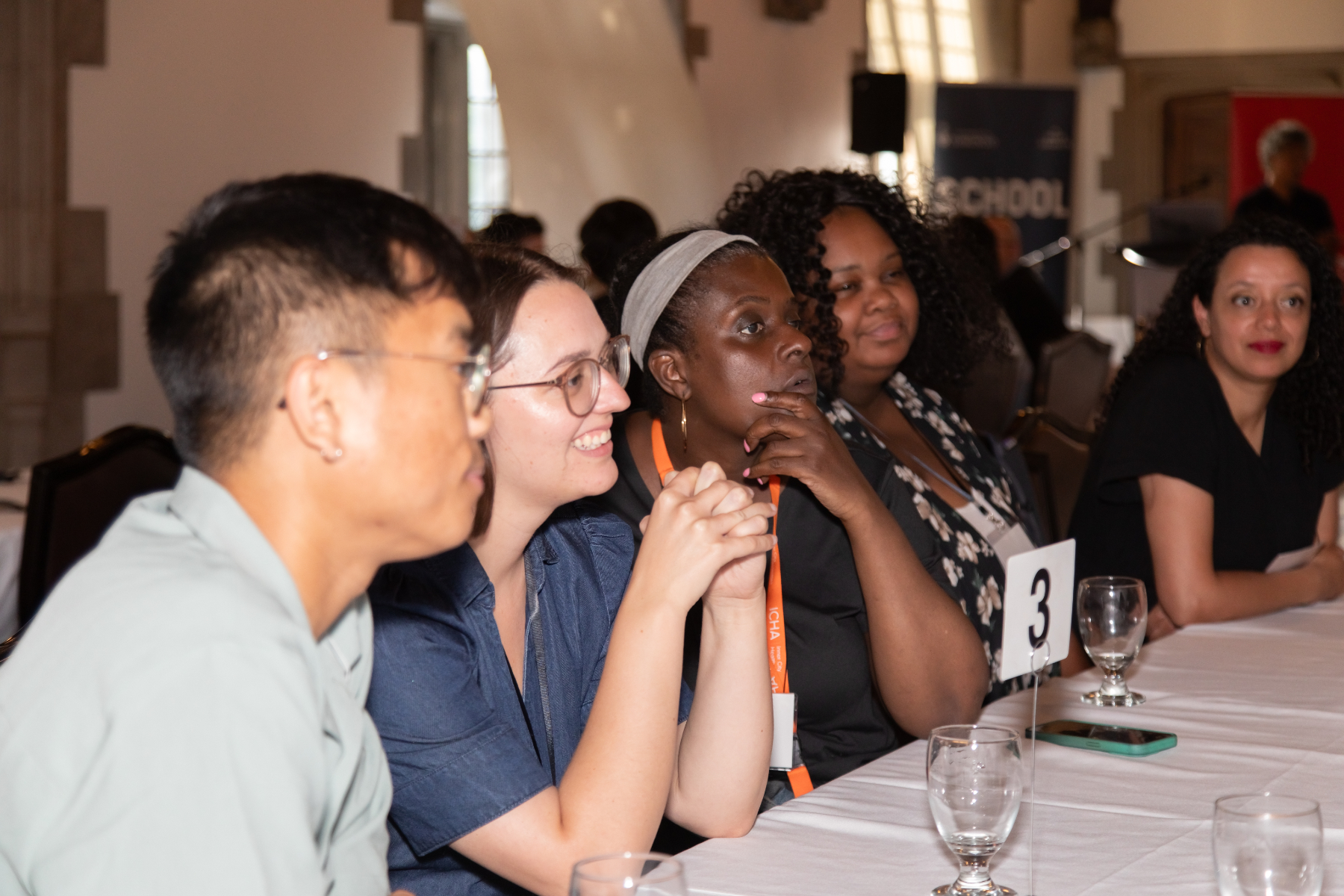
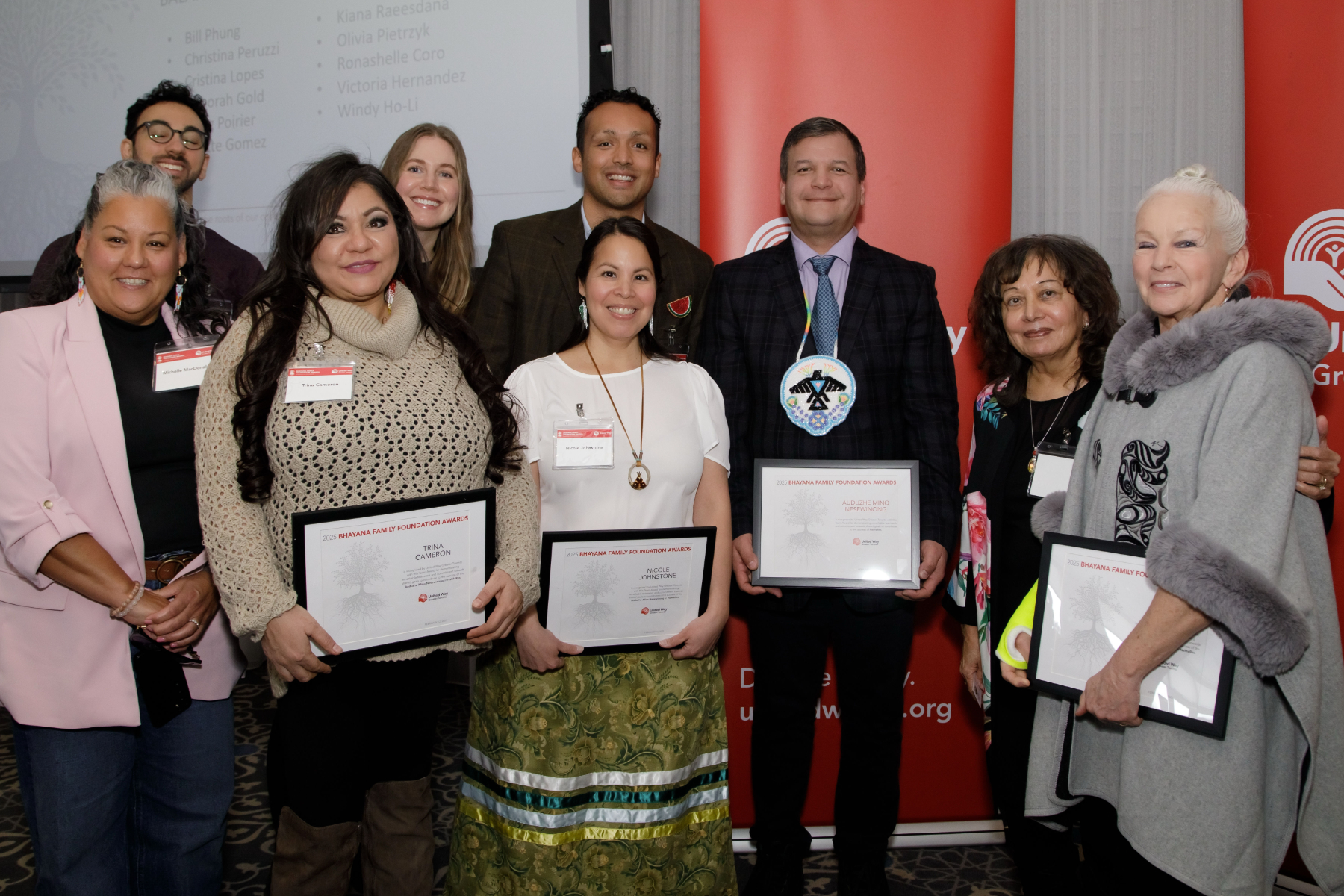
Campaign for community kicks off
Our fundraising campaign launches with a new look, but the same unwavering commitment to mobilizing the GTA to fight poverty and build a better region for all. Any Way We Can showcases the breadth of programs, partnerships and initiatives United Way is leading to take on critical social issues from housing affordability to food security. And from our signature fundraiser, United Way ClimbUP at the CN Tower, to almost 2,000 individual workplace events spearheaded by our partners in labour and the public, private and civic sectors, fall is abuzz with community at the top of the agenda. It is the efforts and generosity of these volunteers and donors that takes centre stage when we extend our thanks — also for a 3% growth in year over year giving — at the Local Leaders event and our Annual General Meeting.
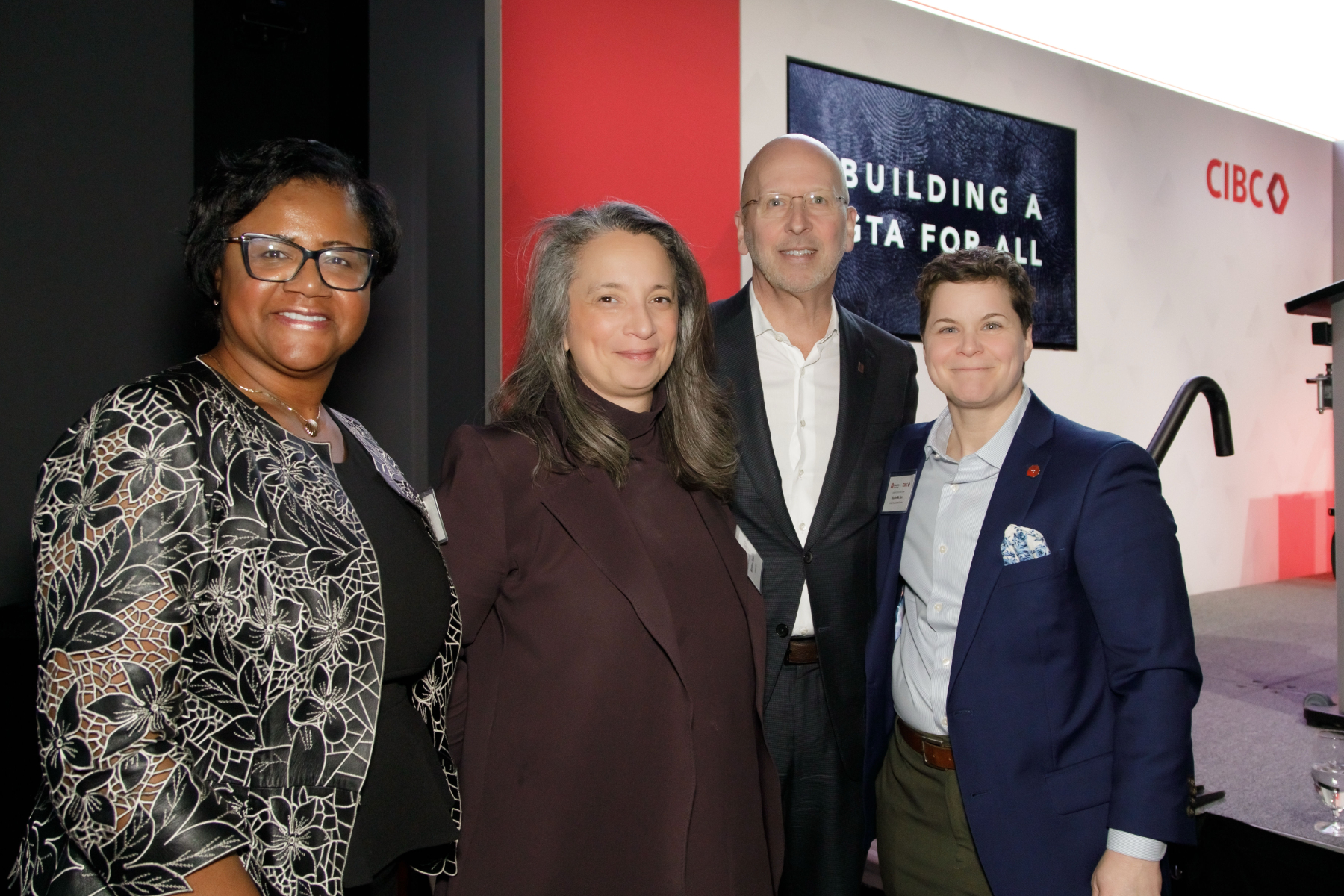
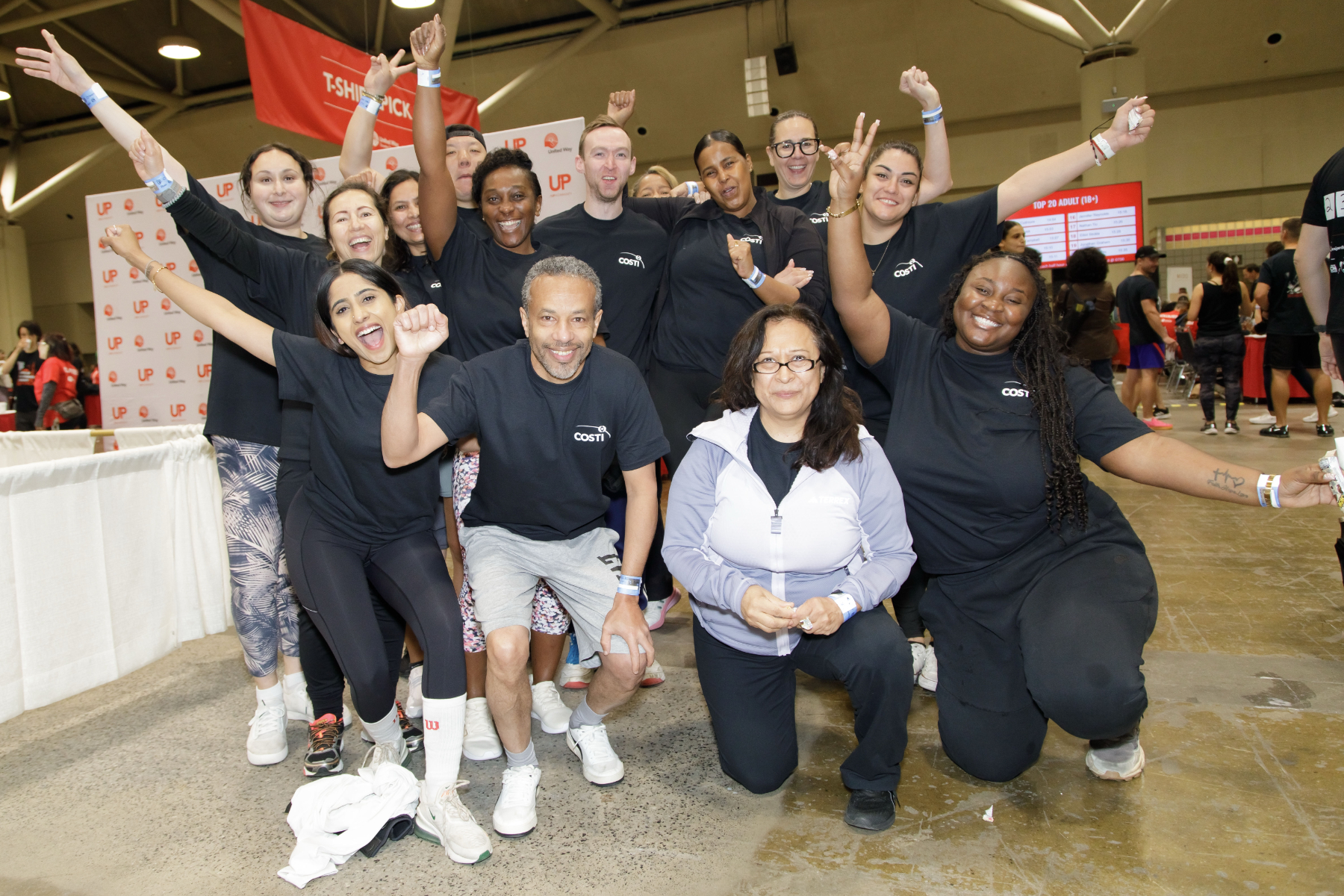
Community Real Estate: Safeguarding services and spaces
Our research report Essential Spaces: Real (Estate) Solutions for Community Needs, reveals the impact of the rising costs of rent on community service organizations. Written with the Infrastructure Institute at the School of Cities, University of Toronto, the report finds that with 70% of organizations leasing their space and occupancy costs up as much as 57% over the last decade, many are at risk of displacement or closure. It is a call to action, and in keeping with recommendations, United Way announces the CommunityReal Estate Initiative to strengthen our network, back-stop frontline agencies and secure permanent and sustainable space for critical services:
- $60 million for 10 new Hubs for a total of 19 Hubs across the GTA by 2035
- $2.3 million in small capital funds in 2025-26
- Programs to enable agency leaders to gain expertise and build their capacity to make informed decisions about real estate
With momentum for this response building, we are experimenting with innovative ways to support community real estate projects, including a loan program. Our first loan out the door goes to College Montrose Children’s Place — a free family resource centre that has been supporting families for 40+ years — helping them to seal the deal on their space and keep it in community hands.
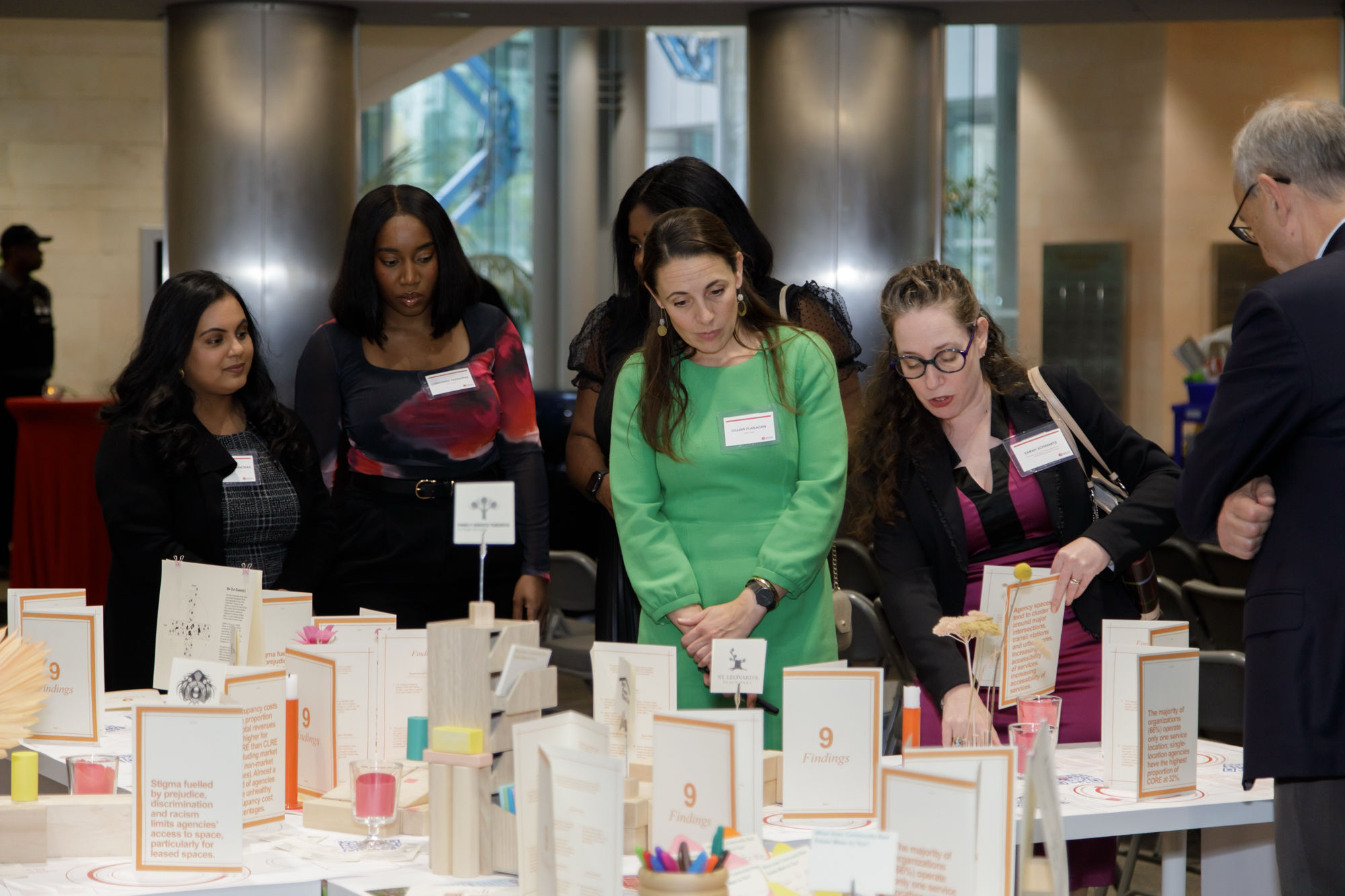

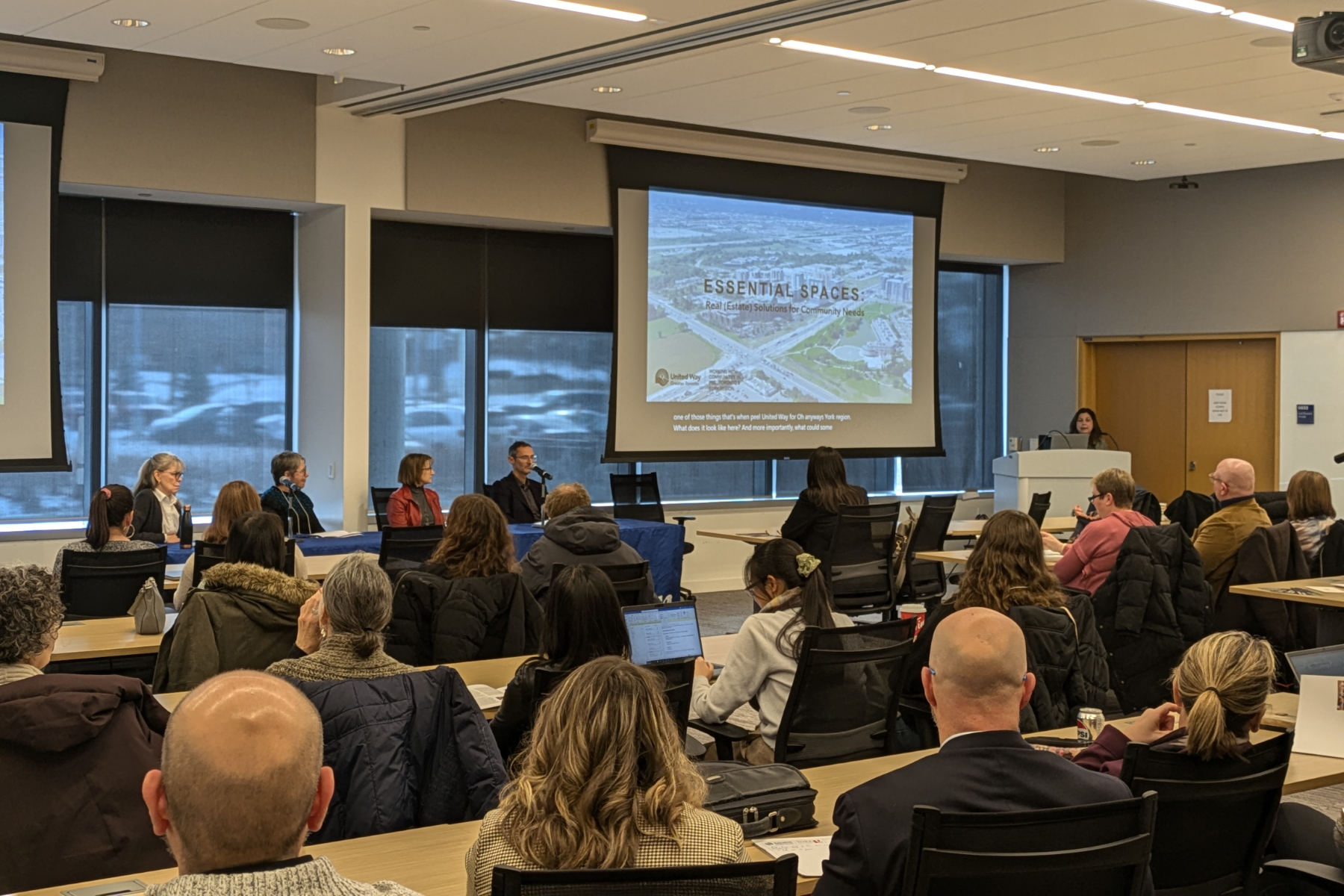
PIT Count: Taking to the streets to end homelessness
In York Region, United Way plays a special role in implementing the federal
government’s homelessness strategy, Reaching Home. We lead the York Region Homelessness Community
Board
(YRHCB) and work with partners, including the Region of York, to conduct the annual Point-in-Time
Count.
The 24-hour survey of people experiencing homelessness provides a clearer picture of the issues
and
in
turn can shape policy and initiatives to alleviate homelessness. Data collected, including trends
over
time, will be shared in an upcoming report. United Way also works closely with the YRHCB to
allocate
Reaching Home dollars to the most effective programs and capital projects. Thanks to a new
committee,
those decisions are now being made with greater insights from the people who matter most: people
with
lived or living experience of homelessness.
Another way we’re tackling homelessness? Parkdale’s Dunn House. Our partnership with the City
of
Toronto, University Hospital Network (UHN) and community housing provider Fred Victor, a United
Way-funded agency, offers
supportive
housing and community-based supports, including a community kitchen and meal provision for 50+
individuals managing chronic complex health challenges.
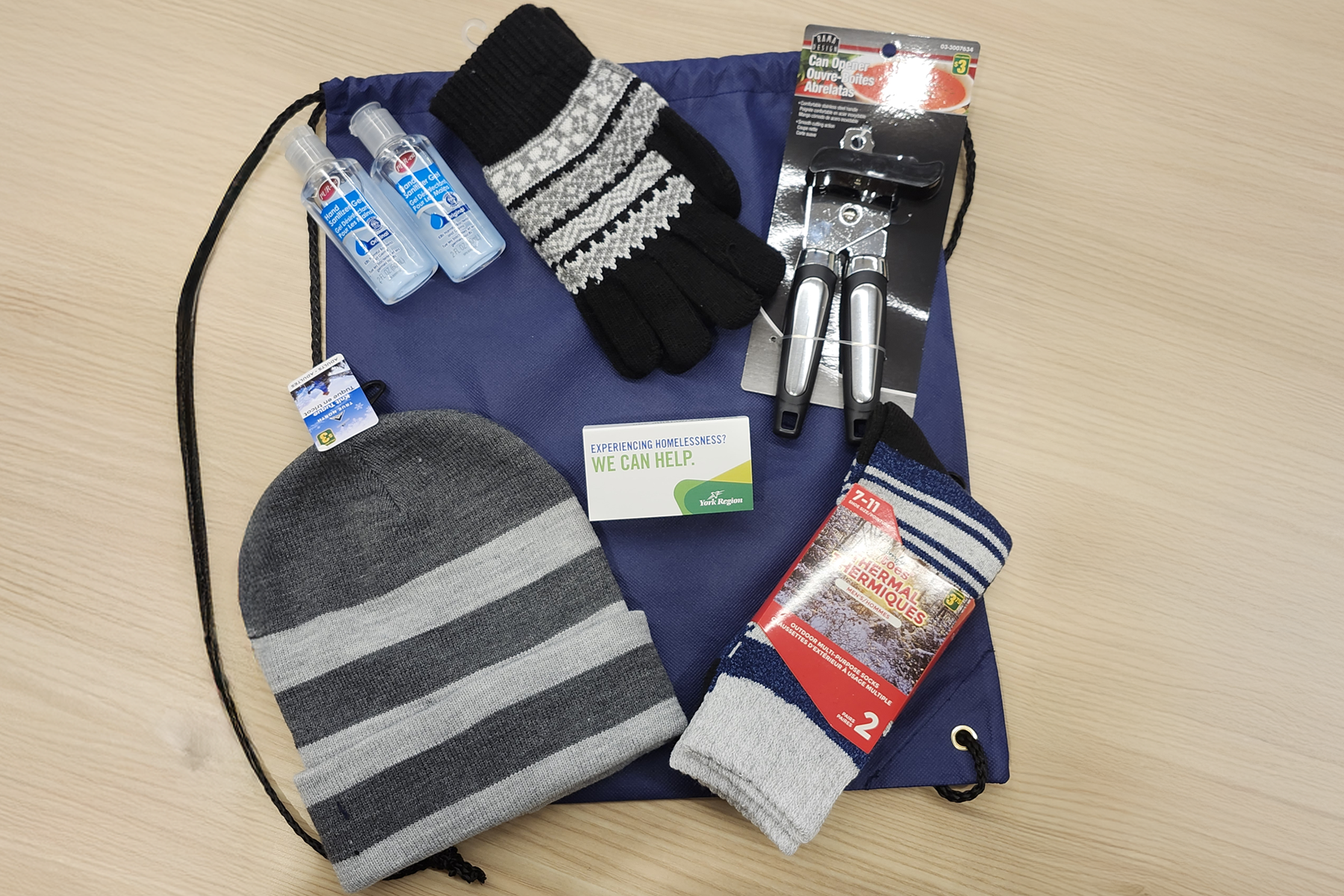
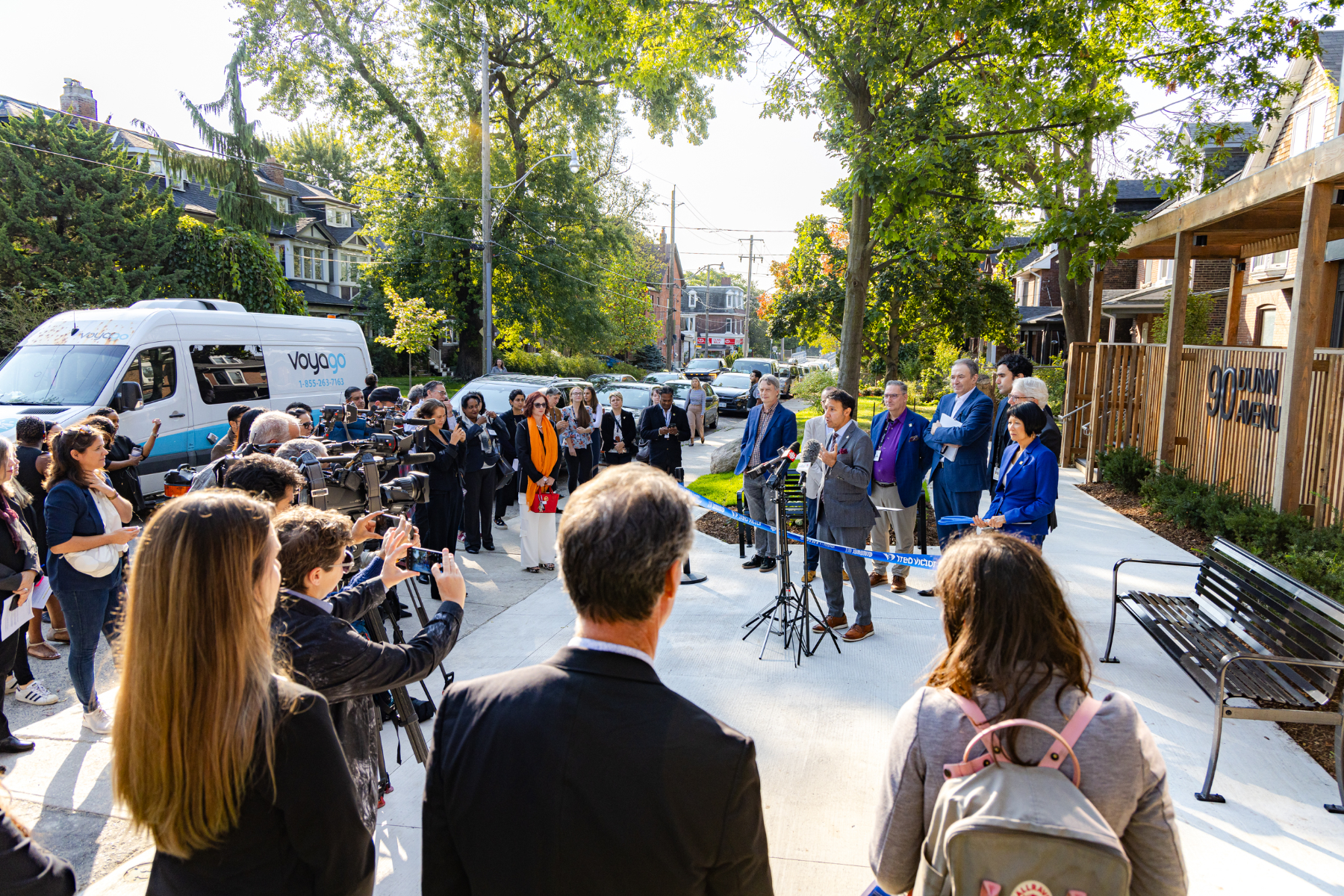
Envisioning and investing in a thriving Jane Finch neighbourhood
With the community near Jane and Finch at the crossroads of development, United Way invests in local residents and their vision for the future. Following a community-led review process, the first round of Community Action Grants — part of a $1-million program — directs resources to seven hyper-local neighbourhood projects, focused on community priorities, such as safety and wellbeing, food security and inclusive employment opportunities. Programs offered include one from the Youth Association for Academics, Athletics and Character Education which empowers Black parents impacted by the justice system with tools and support. As well, United Way is working closely with the City of Toronto to support community members leading the charge for a Community Hub and centre for the arts under the trusteeship of Jane Finch Centre.
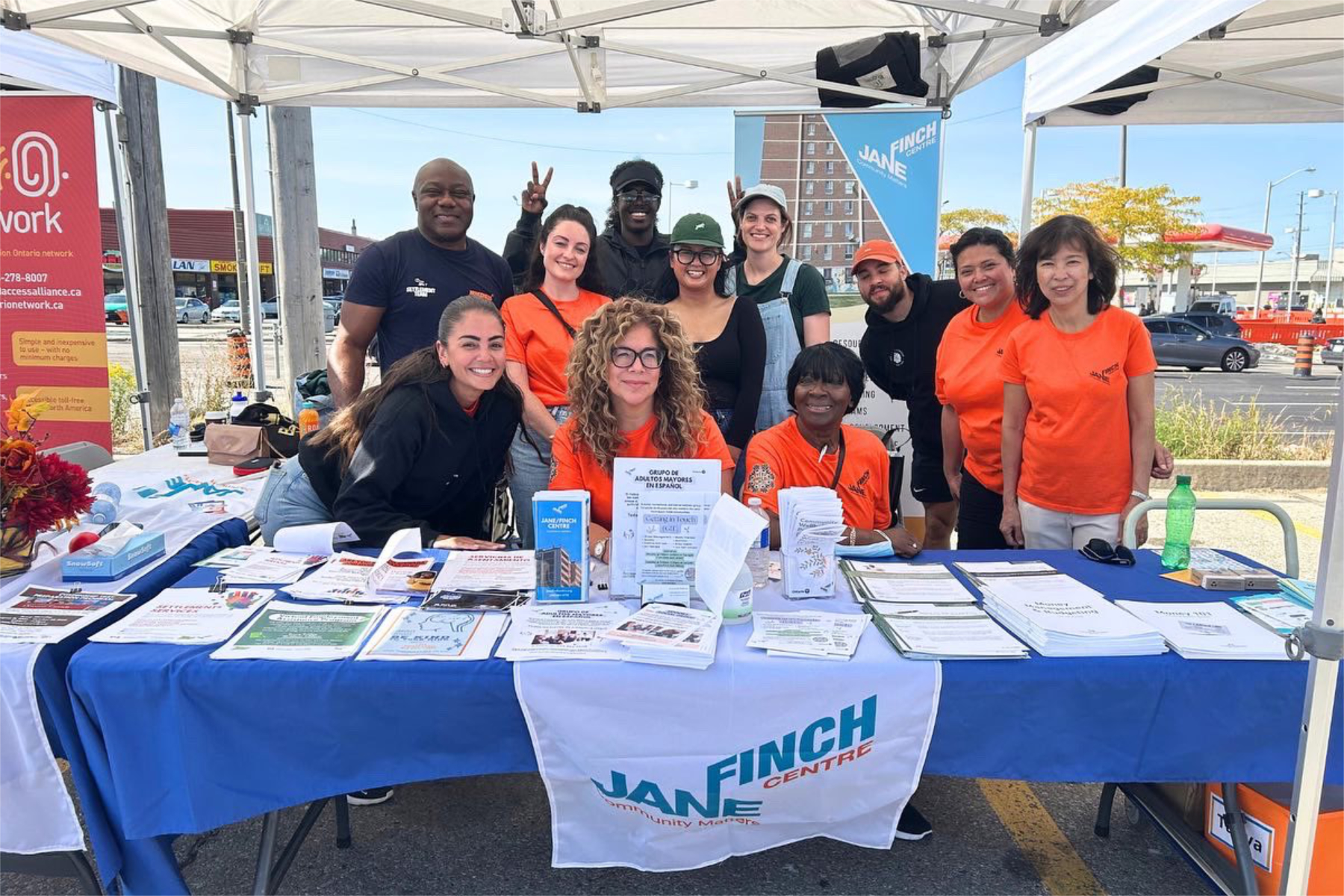
Program funding for today’s needs
United Way announces $71 million in new program funding targeting housing and homelessness, inclusive employment and other issues affecting people living in poverty. Over the next three years, funding will help support 260 high-impact programs and services meeting needs across 13 issue areas. While many recipients have long been with United Way, funding enables nine new programs and brings two agencies new to our network. Margaret’s Community and Housing Support Service Inc. delivers intensive supports aimed at preventing eviction and promoting stability among high-needs clients while Wigwamen Incorporated offers holistic supports integrating cultural practices and promoting healing and connection through the Nishaabeaadzowin (Native Way of Life) program. Funding reflects our commitment to reconciliation and equity, surpassing our goals with 27% led by, focused on and serving Indigenous, Black and other structurally disadvantaged groups.
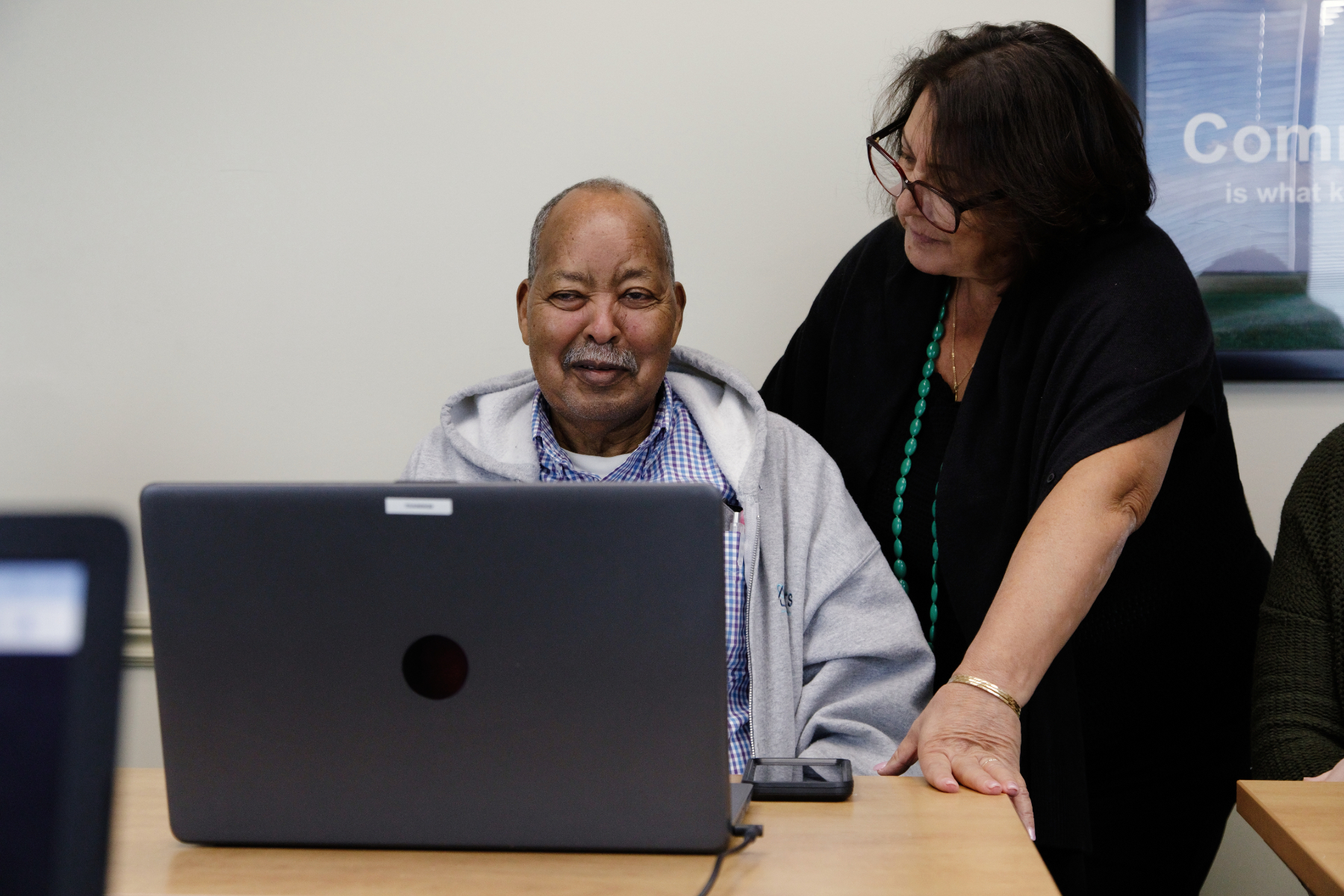
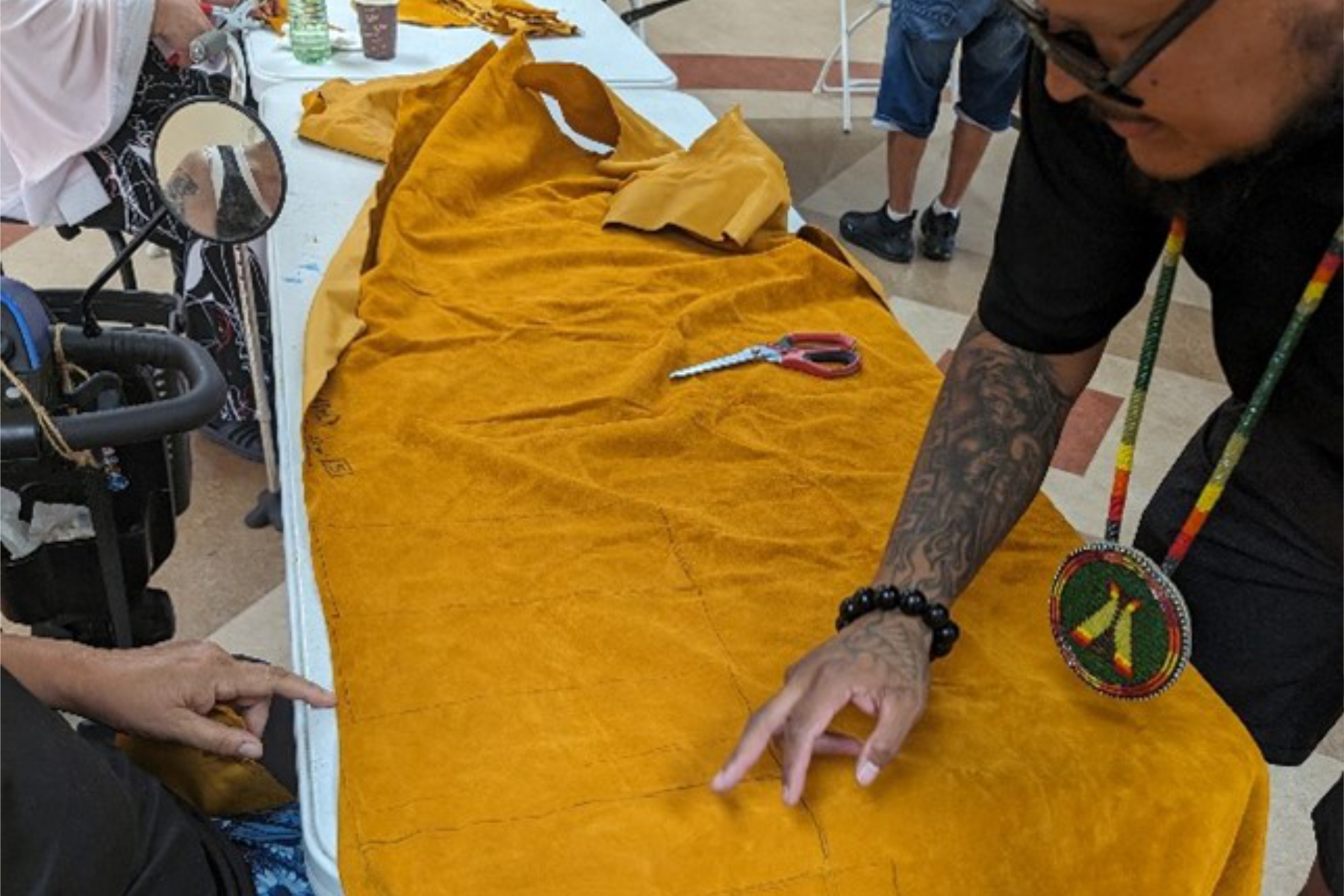
Ontario goes to the polls; United Way shines a light on toughest issues
Elections provide key opportunities to share information on critical issues and call for urgent
action
on the toughest challenges. That’s what United Ways across Ontario do with a joint op-ed pushing
supportive housing, an evidence-based intervention that tackles the root causes of homelessness,
over
enforcement to remove encampments.
Similarly in May 2024, United Way hosted a Mississauga mayoral debate in partnership with Sheridan
College, the Mississauga Board of Trade and the Metamorphosis Network to engage residents on both
hot-button and long-simmering issues.
But our advocacy isn’t limited to election periods. We are always ready to lead or throw our
weight
behind compelling campaigns to make the difference. This year we also worked with the United Way
movement on an open letter urging the government to adopt legislation acknowledging intimate
partner
violence as an epidemic. And as members — and funders — of the Ontario Living Wage
Network, we
joined
other employers and non-profits to champion $26/hour as part of November’s Living Wage Week.
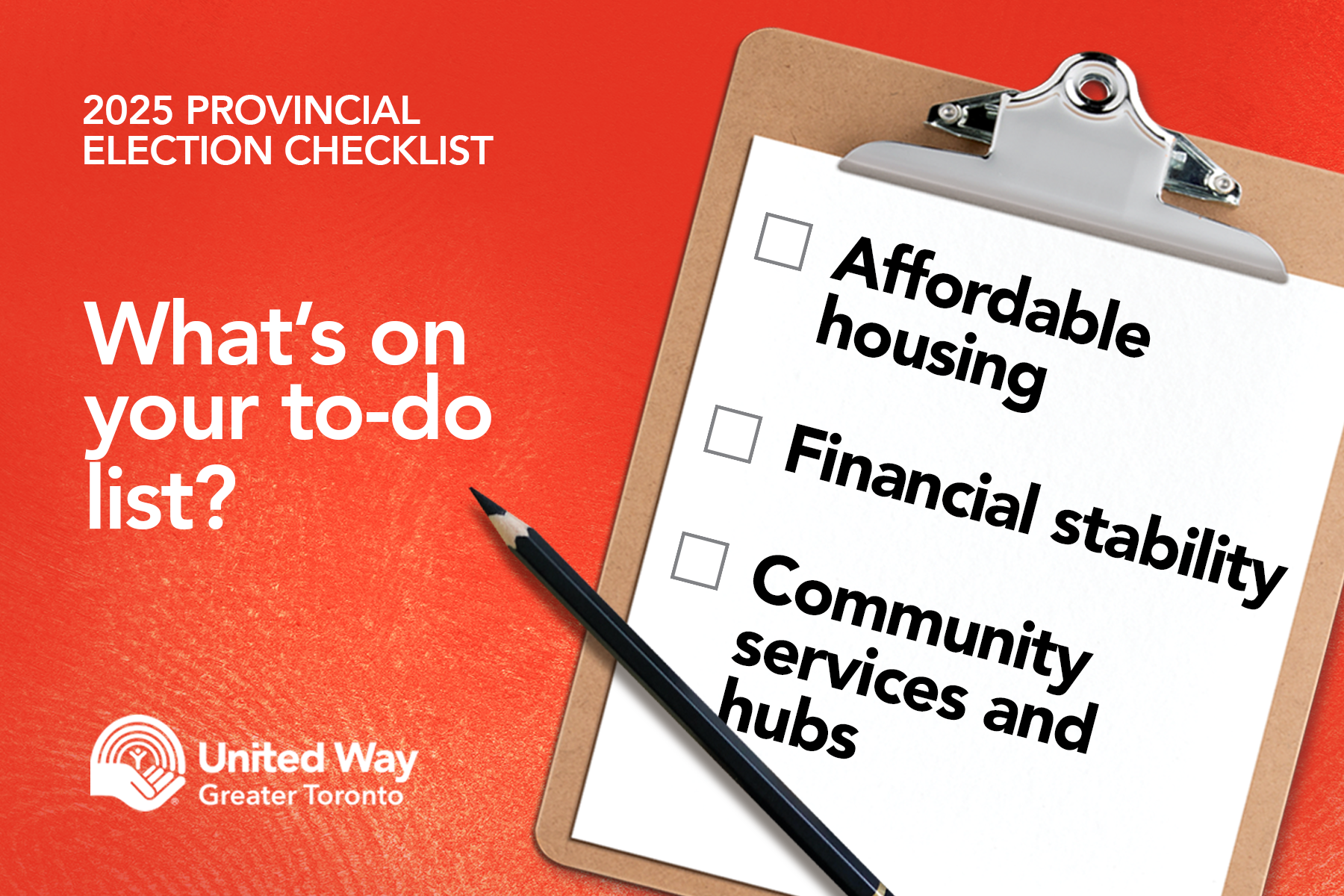
Doing better for refugees
In summer 2023 African asylum seekers found themselves struggling to access shelter space in overburdened and at capacity shelters across Peel, Toronto and York Region. United Way swung into action then, establishing an emergency fund to get supports to the agencies and community groups — many Black-led — which responded to the crisis. Now we’re taking notes from that experience to build a better welcome for refugees in future. Through a qualitative research project in collaboration with the City of Toronto, Region of Peel and Regional Municipality of York, we’re connecting with those asylum seekers and service providers to understand their experience and identify and address barriers to social and health services. The findings of the final report, expected later this year, will include actionable recommendations to better collaborate and support newcomers in future.
